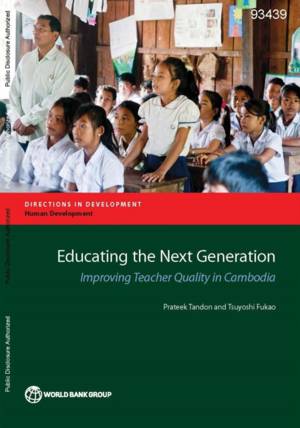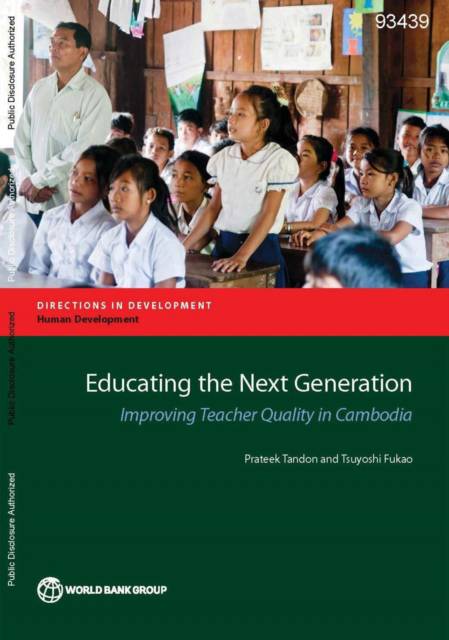
- Afhalen na 1 uur in een winkel met voorraad
- Gratis thuislevering in België vanaf € 30
- Ruim aanbod met 7 miljoen producten
- Afhalen na 1 uur in een winkel met voorraad
- Gratis thuislevering in België vanaf € 30
- Ruim aanbod met 7 miljoen producten
Zoeken
€ 50,95
+ 101 punten
Omschrijving
To ensure education's contributions to growth, Cambodia needs to address the next challenge of education reform: improving student learning. A high-quality teaching workforce--the bedrock of all high-performing education systems--is the single most important factor in improving student learning. Quality teachers are at the heart of developing the talent of the next generation. They underpin the educational investments that will drive growth; they stand at the crossroads of sectoral, service delivery, public financial management, and civil service reform. Educating the Next Generation: Improving Teacher Quality in Cambodia assesses teaching quality and presents policy options for reform. Through classroom observation, assessments of mathematics and pedagogical content knowledge, and surveys of teachers and school directors, it sheds light on content and instruction, interactions with school directors, instructional support systems, and implementation of teacher standards. This book investigates the competencies and skills of those attracted to teaching. It assesses the extent to which preservice education in Cambodia is delivering graduates with high content mastery and exposure to a student-centered learning environment. Finally, it examines how teacher performance has been impacted by national incentives, an evaluation system that is disconnected from classroom realities, and the extent to which opportunities to learn and share best-practice lessons with peers exists. From the diagnosis follow three policy pillars to reform how teachers are trained, maintained, and motivated: - Making teaching a more attractive profession - Improving the processes for preparing teachers - Encouraging stronger classroom performance. The book contains detailed recommendations under each policy pillar and provides the platform to facilitate Cambodia's transition to its next generation of educational reform.
Specificaties
Betrokkenen
- Auteur(s):
- Uitgeverij:
Inhoud
- Aantal bladzijden:
- 170
- Taal:
- Engels
- Reeks:
Eigenschappen
- Productcode (EAN):
- 9781464804175
- Verschijningsdatum:
- 8/01/2015
- Uitvoering:
- Paperback
- Formaat:
- Trade paperback (VS)
- Afmetingen:
- 178 mm x 254 mm
- Gewicht:
- 308 g

Alleen bij Standaard Boekhandel
+ 101 punten op je klantenkaart van Standaard Boekhandel
Beoordelingen
We publiceren alleen reviews die voldoen aan de voorwaarden voor reviews. Bekijk onze voorwaarden voor reviews.







